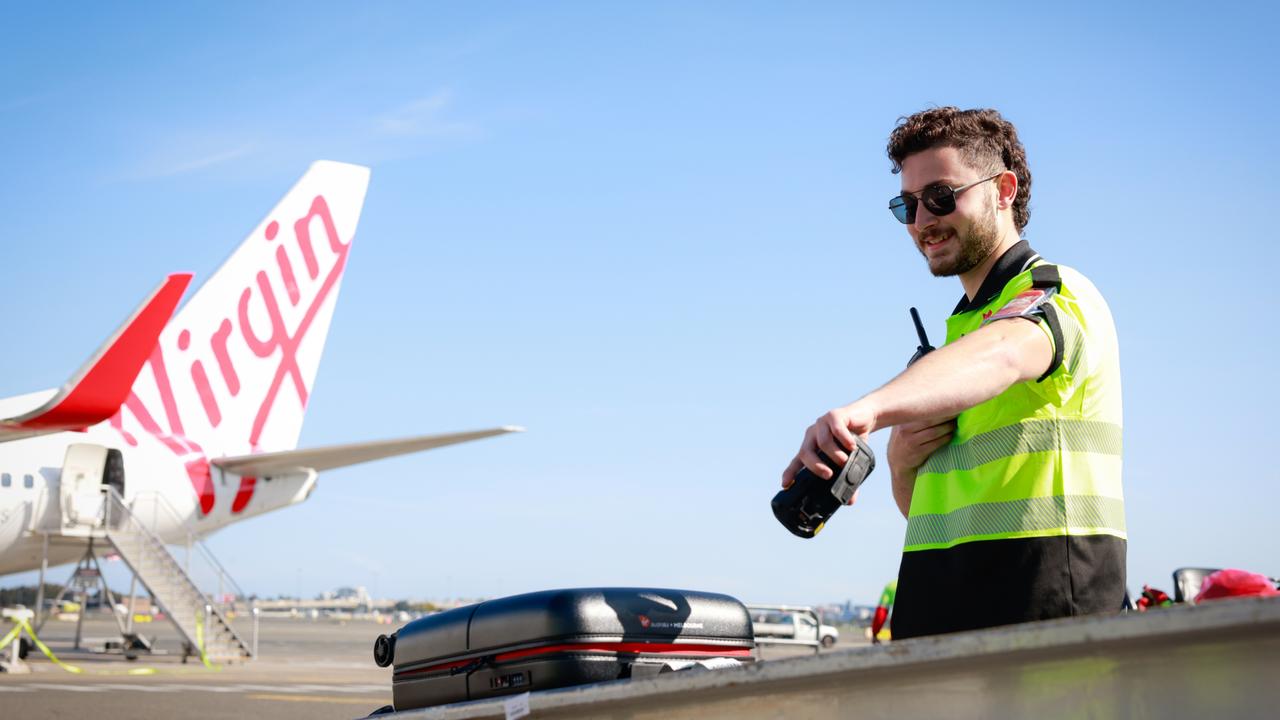ASIO takes centre stage as unofficial election campaign begins
Australia’s spies have taken a leading role in an area of Australian life they would prefer to stay out of - and the signs are it will only increase in the coming weeks.
National
Don't miss out on the headlines from National. Followed categories will be added to My News.
Australia’s domestic spy agency has found itself at the centre of the unofficial federal election campaign, an uncomfortable spotlight falling on an organisation which prefers to operate in the shadows.
A speech which referenced foreign interference in politics, delivered by Australian Secret Intelligence Organisation (ASIO) Director-General of Security Mike Burgess in Canberra on February 9 has triggered dark mutterings about ASIO’s perceived motivations, veiled threats of internal retribution within the Labor Party and turbocharged a Government scare campaign against the Labor leadership.
In the midst of the storm, Mr Burgess’ efforts to warn both sides of politics they were being targeted by “equal opportunity’’ foreign powers, and his observation that weaponising national security and intelligence was “not helpful’’ have been all but lost.
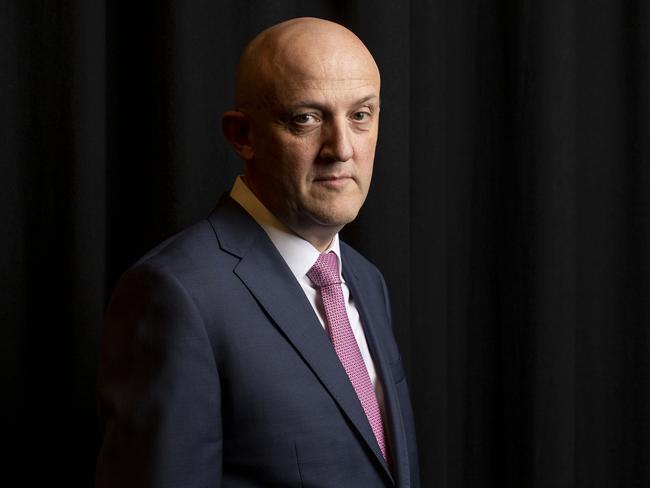
The problem was not so much Mr Burgess’ speech – his annual threat assessment delivered as part of his clearly-communicated plan to make ASIO more transparent – but the interest it triggered.
Mr Burgess had highlighted a case study of an attempt by an unnamed foreign government “Puppeteer’’ to influence an election somewhere in Australia through the use of a local agent, an offshore bank account, and plans to back particular candidates with money and glowing stories in their local media. The plot was disrupted and failed.
Days after his speech, a newspaper identified the NSW Labor Party and its federal candidates as the target of the plot. This infuriated Opposition Leader Anthony Albanese, who met with Mr Burgess and later said Mr Burgess had assured him he had no concerns with any of Labor’s candidates. Mr Burgess confirmed Mr Albanese had given an accurate account of their conversation.
But it was manna from heaven for the Coalition, who have been trying desperately to tar the Labor Party as being beholden to Beijing. Prime Minister Scott Morrison’s “Manchurian Candidate” slur on Deputy Labor Leader Richard Marles was quickly withdrawn, but the point had been made.
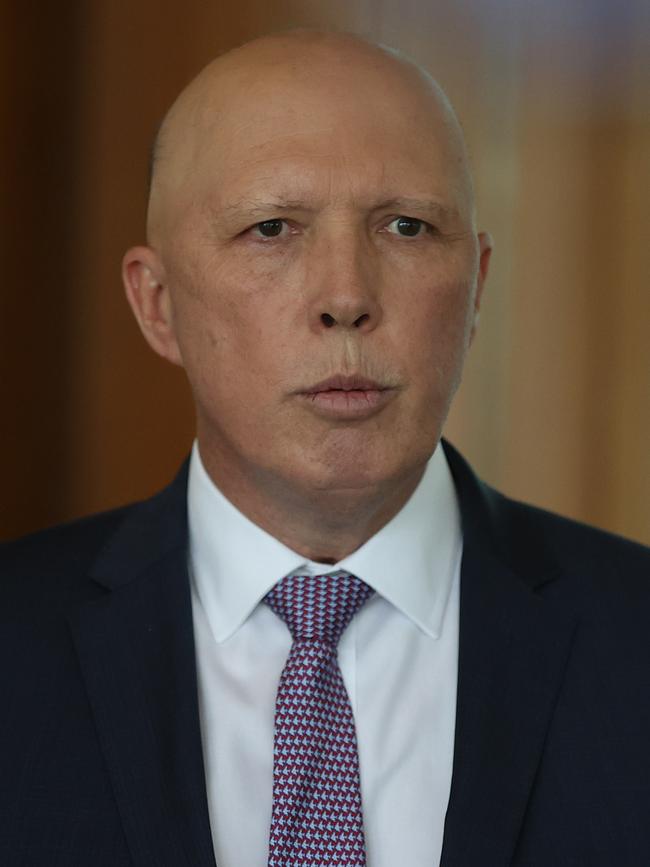
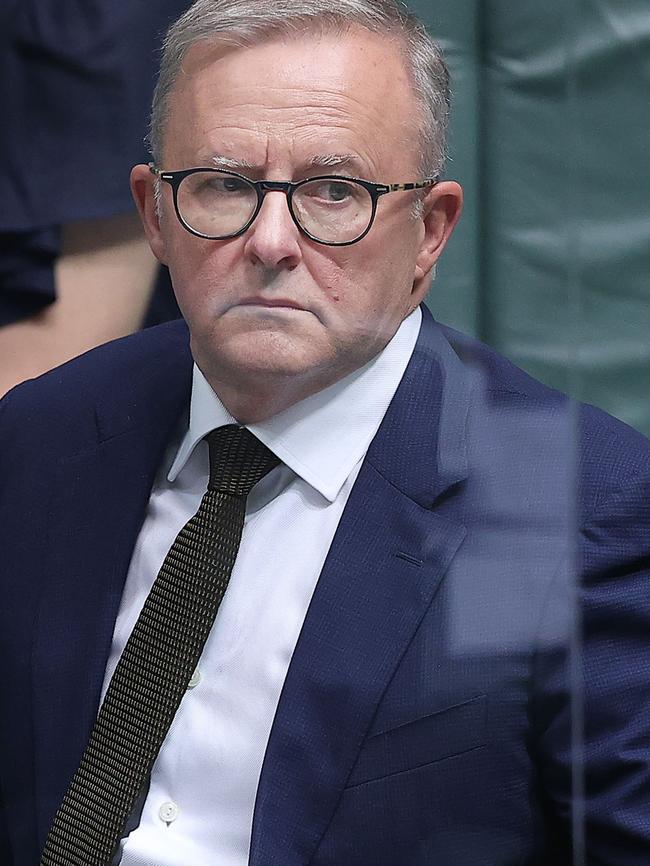
Defence Minister Peter Dutton accused Mr Albanese of being Beijing’s candidate, and raised eyebrows when he referred in a radio interview to “open source and other intelligence’’ he had seen.
What intelligence was he referring to, people wondered. Classified intelligence?
“There goes ASIO trying to f*ck us again before the election,’’ one Labor person said.
Labor Senator Kimberley Kitching, a noted China hawk, co-founding member of the “Wolverines” parliamentary group calling out the Chinese Communist Party’s bullying and economic coercion, entered the fray via a Senate Committee on Legal and Constitutional Affairs, where Mr Burgess was giving evidence.
“I’m reliably informed the Puppeteer mentioned in your annual threat assessment, your annual speech last week, is Chau Chak Wing,’’ she said, referring to the controversial billionaire Chinese property developer who donated a total of $4 million to both major political parties before they stopped accepting donations from him in 2018.
“I believe it to be Chau Chak Wing. Are you able to confirm it is Chau Chak Wing?’’
Mr Burgess refused to directly answer, and concluded “Senator … think it’s unfair you asked me that question in public.’’
Senator Kitching’s decision to name Dr Chau – who has denied any involvement – under Parliamentary privilege – prompted strong reactions within the Labor Party.
“Sheer treachery,’’ one frontbencher said, noting that raising Dr Chau’s name in public invariably led back to questions about Labor’s problematic involvement with Chinese developers such as Huang Xiangmo. Former Labor Senator Sam Dastyari lost his job after he was found to have tipped Mr Huang off that he was under ASIO surveillance. Mr Huang would later employ former Labor state secretary Jamie Clements on a $200,000 retainer, and gave him $35,000 cash in a wine box to pay his legal fees after a sexual harassment case in 2015.
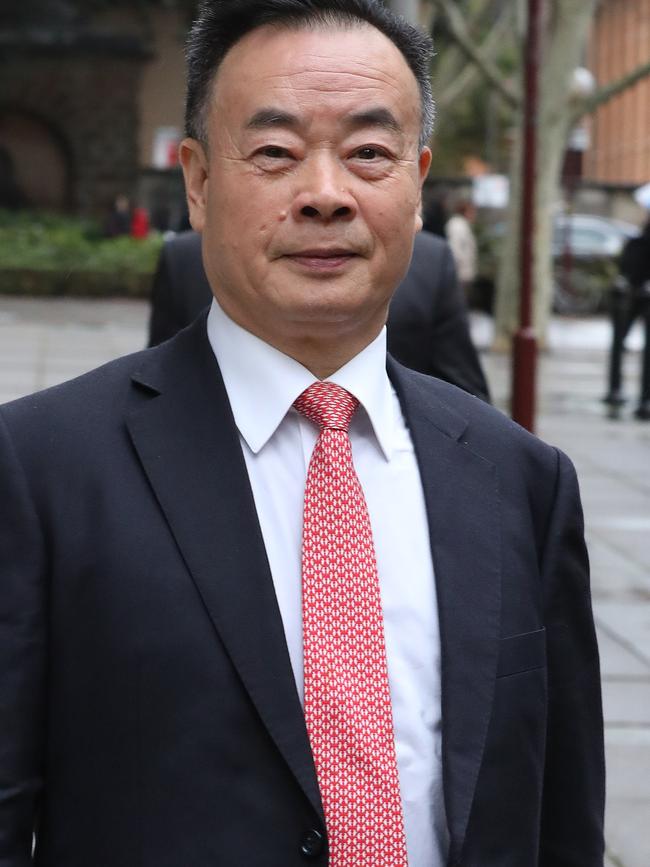
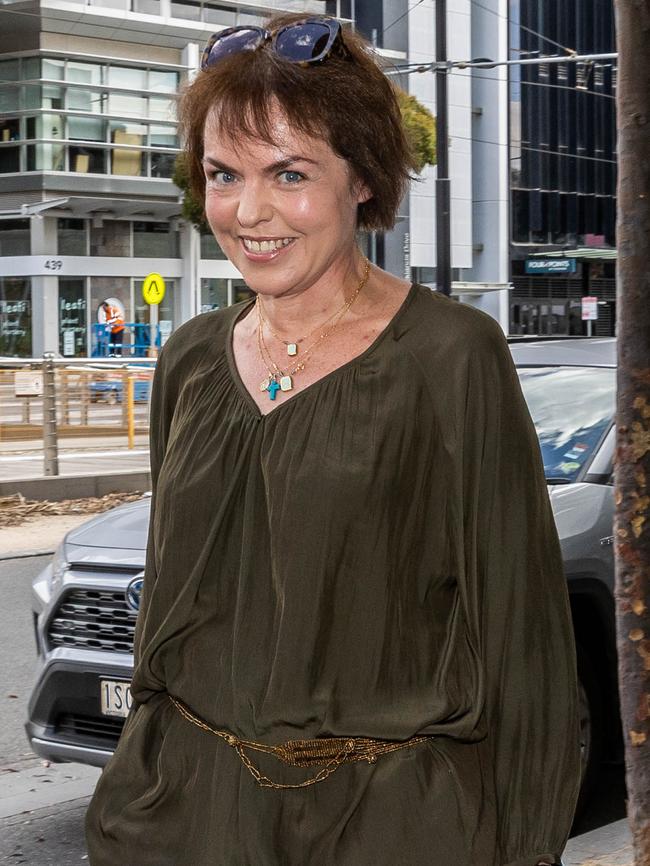
“She’s not preselected yet,’’ another warned Senator Kitching, referring to the bitter factional fight in Victoria where the Senate ticket remains unresolved for the May election.
But a third source noted Senator Kitching’s continued efforts to stand up to China, much earlier than many other MPs, as she had against Russia. “Her instincts on national security are excellent,’’ the source said.
Senator Kitching would not comment for this article. She is known to have told colleagues her conscience is clear, saying words to the effect of “can you imagine if someone got elected to Parliament who was answering back to a foreign power? Imagine sitting in a committee with them?”
Concerns that she was releasing classified information missed one key point. Senator Kitching is not in a role where she receives classified briefings.
Overshadowed by Senator Kitching’s 40-second cameo at that committee hearing were the questions asked by her colleague, Labor’s home affairs spokeswoman Kristina Keneally.
Senator Keneally asked a number of pointed questions of Mr Burgess about the investigation (he wouldn’t answer), about the “leak’’ that it apparently related to Labor (he labelled it speculation), and whether he had any concerns about Labor’s candidates (he didn’t).
Mr Burgess, a forward-leaning spymaster who spent time at Telstra before coming back to the public sector and being appointed to run ASIO, is considered apolitical and he was at pains to tell Senator Keneally that.
“ASIO is proudly apolitical and the Director-General of security is – I am – apolitical,’’ he said.
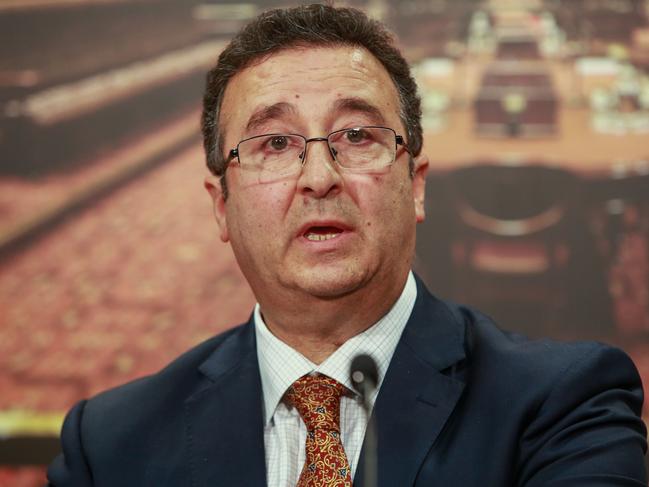
“ASIO is here to serve our national interest, not sectional interests or partisan interests or personal interests.
“I deliberately chose to use that case study to raise awareness, in particular because we have a federal election approaching and it’s important that we all understand what political foreign interference looks like so people can all make informed decisions.
“Of course I recognise there may be people who choose to misuse that, officials, or members of parliament or ministers, that’s a risk. Any misuse is a matter for them to answer to, not to myself.
“We do see multiple attempts from multiple countries, thankfully most of them are not successful. Some of them are.
“It was important to get that case study out there for awareness purposes.’’
“Hmmm,’’ Senator Keneally said in reply.
Labor has some concerns about the fact a journalist was present when police and ASIO raided the home and office of their Upper House MP Shaoquett Moselmane as part of a foreign interference investigation in 2020. Mr Burgess has strongly denied ASIO had any role in alerting the media.
While Mr Moselmane was suspended for a few months, Labor welcomed him back into their caucus in November 2020 after being reassured that the MP was not being targeted by authorities, who were instead investigating his staff member, John Zhang.
While there has been little movement publicly in relation to the investigation into Mr Zhang, News Corp has been told the inquiry remains an active investigation, and had been slowed, but not stopped, by a dispute over documents claimed to be protected by parliamentary privilege.
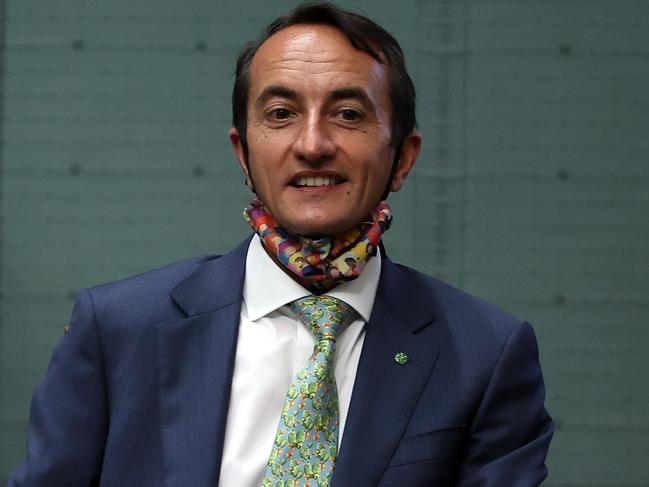
While it might seem all one-way traffic against Labor in relation to allegations of foreign influence, the Coalition may face some uncomfortable moments next month.
On March 15, Di Sanh “Sunny’’ Duong will appear in the Melbourne Magistrates Court. The first person in Australia to be charged under the new foreign interference laws he is alleged to have plotted to influence MPs, including former Education Minister Alan Tudge.
Mr Duong, who was charged last year, denies the charges, and the summary of facts is yet to be made public. News Corp has been told that the case is much wider than allegations relating to a single MP.
The debate seemed to be drawing in some unlikely combatants. The Liberal member for Wentworth, Dave Sharma, made an uncharacteristic overreach when he went on radio and said: “I don’t want to live in an Australia where we can’t debate certain things because the spy chiefs tell us not to … they need to be careful not to interfere in what is the domain of elected representatives.”
Mr Sharma, a former ambassador to Israel, wasn’t in Parliament in 2015 when the last big eruption occurred between ASIO and the political classes. Apparently concerned by comments made by a number of Liberal MPs to the Herald Sun newspaper at the height of the war against Islamic State, former ASIO director-general Duncan Lewis rang several of them, including young backbencher Andrew Hastie, a former SAS captain, and the mild-mannered Dan Tehan, and asked them and others to tone down their language.
By comparison, Mr Burgess’ plea for people to consider that weaponising national security and intelligence “isn’t helpful’’ seems relatively benign.


